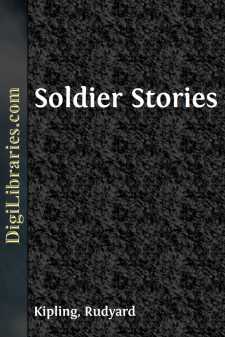Categories
- Antiques & Collectibles 13
- Architecture 36
- Art 48
- Bibles 22
- Biography & Autobiography 813
- Body, Mind & Spirit 142
- Business & Economics 28
- Children's Books 17
- Children's Fiction 14
- Computers 4
- Cooking 94
- Crafts & Hobbies 4
- Drama 346
- Education 46
- Family & Relationships 57
- Fiction 11829
- Games 19
- Gardening 17
- Health & Fitness 34
- History 1377
- House & Home 1
- Humor 147
- Juvenile Fiction 1873
- Juvenile Nonfiction 202
- Language Arts & Disciplines 88
- Law 16
- Literary Collections 686
- Literary Criticism 179
- Mathematics 13
- Medical 41
- Music 40
- Nature 179
- Non-Classifiable 1768
- Performing Arts 7
- Periodicals 1453
- Philosophy 64
- Photography 2
- Poetry 896
- Political Science 203
- Psychology 42
- Reference 154
- Religion 513
- Science 126
- Self-Help 84
- Social Science 81
- Sports & Recreation 34
- Study Aids 3
- Technology & Engineering 59
- Transportation 23
- Travel 463
- True Crime 29
The Eyes of Asia
by: Rudyard Kipling
Description:
Excerpt
A RETIRED GENTLEMAN
From Bishen Singh Saktawut, Subedar Major, 215th Indurgurh [Todd's] Rajputs, now at Lyndhurst, Hampshire, England, this letter is sent to Madhu Singh, Sawant, Risaldar Major [retired] 146th [Dublana] Horse, on his fief which he holds under the Thakore Sahib of Pech at Bukani by the River, near Chiturkaira, Kotah, Rajputana, written in the fifth month of the year 1916, English count.
Having experienced five months of this war, I became infected with fever and a strong coldness of the stomach [rupture]. The doctor ordered me out of it altogether. They have also cut me with knives for a wound on my leg. It is now healed but the strength is gone, and it is very frightened of the ground. I have been in many hospitals for a long time. At this present I am living in a hospital for Indian troops in a forest-reservation called "New," which was established by a King's order in ages past. There is no order for my return to India. I do not desire it. My Regiment has now gone out of France—to Egypt, or Africa. My officer Sahibs are for the most part dead or in hospitals. During a railway journey when two people sit side by side for two hours one feels the absence of the other when he alights. How great then was my anguish at being severed from my Regiment after thirty-three years! Now, however, I am finished. If I return to India I cannot drill the new men between my two crutches. I should subsist in my village on my wound-pension among old and young who have never seen war. Here I have great consideration. Though I am useless they are patient with me.
Having knowledge of the English tongue, I am sometimes invited to interpret between those in the hospital for the Indian troops and visitors of high position. I advance eminent visitors, such as relatives of Kings and Princes into the presence of the Colonel Doctor Sahib. I enjoy a small room apart from the hospital wards. I have a servant. The Colonel Doctor Sahib examines my body at certain times. I am forbidden to stoop even for my crutches. They are instantly restored to me by orderlies and my friends among the English. I come and go at my pleasure where I will, and my presence is solicited by the honourable.
You say I made a mistake to join the war at the end of my service? I have endured five months of it. Come you out and endure two and a half. You are three years younger than I. Why do you sit at home and drill new men? Remember:
The Brahman who steals,
The widow who wears ornaments,
The Rajput who avoids the battle,
Are only fit for crows' meat.
You write me that this is a war for young men? The old are not entirely useless. The Badshah [the King] himself gave me the medal for fetching in my captain from out of the wires upon my back. That work caused me the coldness in my stomach. Old men should not do coolie-work. Your cavalry were useless in France. Infantry can fight in this war—not cavalry. It is as impossible for us to get out of our trenches and exterminate the enemy as it is for the enemy to attack us....












